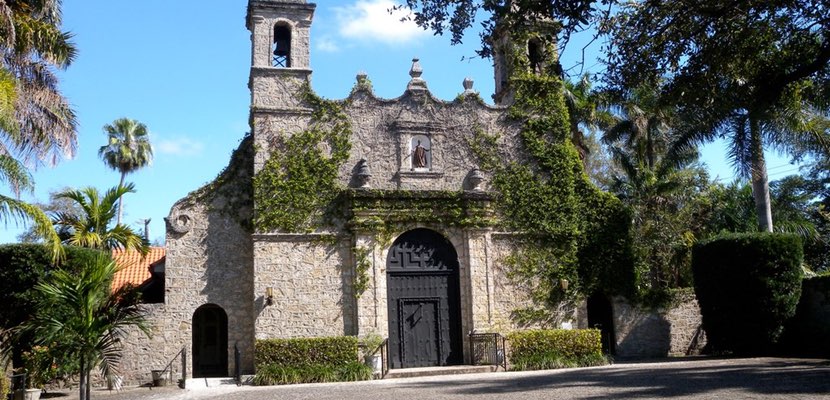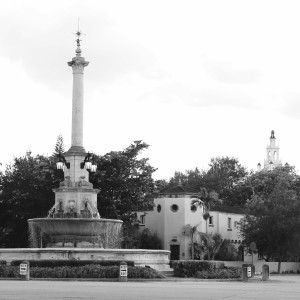The trees grow wild in the Coconut Grove (Cocoanut Grove), memorials to the wild men that built this place; renegades and scofflaws, veterans of the Seminole wars and Bahamian pirates, and maybe a snowbird or two to foot the bill. Mr. Brickell once promised the Grove’s first Commodore that “you will live to hear the whistle of the locomotive here.” He did. They both did.
The men are gone, and so are the railways, though the porch on which they sat remains, the very porch on which much of the city’s fate was decided, the same porch that welcomed from time to time the fierce and mercurial Tiger Tail, whose small band of Indians retired to the Everglades, too proud to live as wards of the state.
The Coconut Grove opens to a bay with shallow, easy waters and steady east wind. Those who came first mostly stayed to sail and fish in those waters. Some of the world’s best sailors and sport anglers to this day remain to do the same. You can no longer see to the bottom; the crowds have come. You can no longer drink from the open spring famous among Bahamians, Seminoles, and millworkers alike; it’s now the entrance to a causeway.
But the trees remain, the trees that turn and dip and seem to smother the houses beneath them. The stateliest is the banyan, which given enough time and casual negligence (itself a Miami tradition) can swallow an entire house. Like most things in Miami, whether strip malls or émigrés, they just drop their roots wherever they can and keep on growing.
In the shade of these old trees, a new Grove emerged, first a haven for hippies and dropouts, now a village of boutiques and open-air cafes where families and couples sit by day in the squares where Dylan and Joni Mitchell used to sing. By night, students come looking for adventure. On Wednesdays, the most popular spots hire police to keep the revelers from spilling heedlessly into the streets, but it never works. The bars happily continue to violate zoning, tort law, and common sense; if you can fit onto the sidewalk, and even sometimes if you can’t, you’re one of us.



